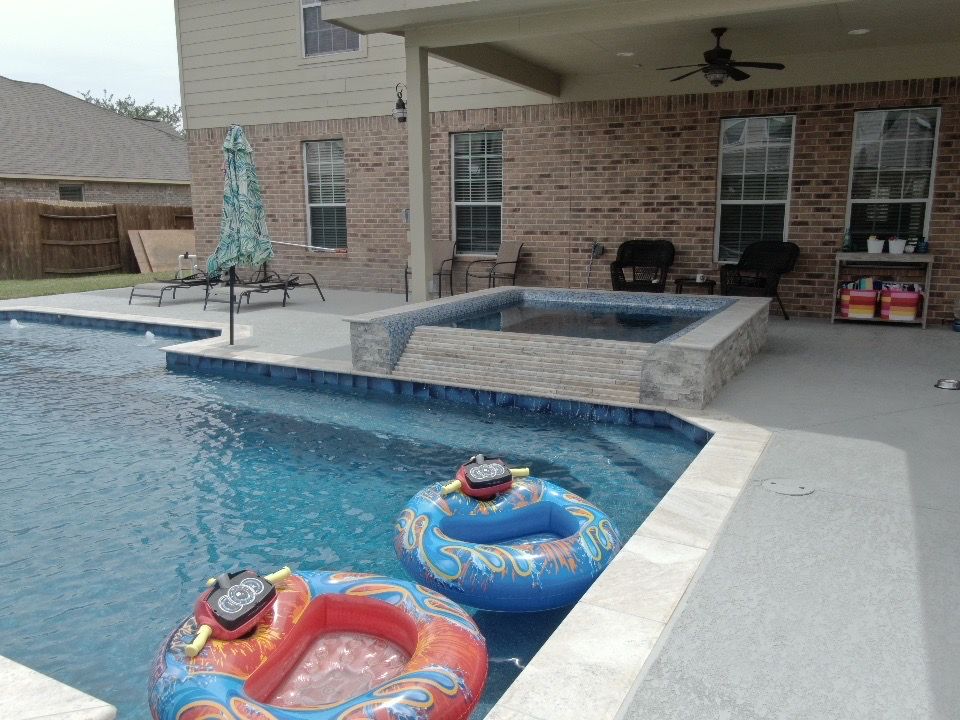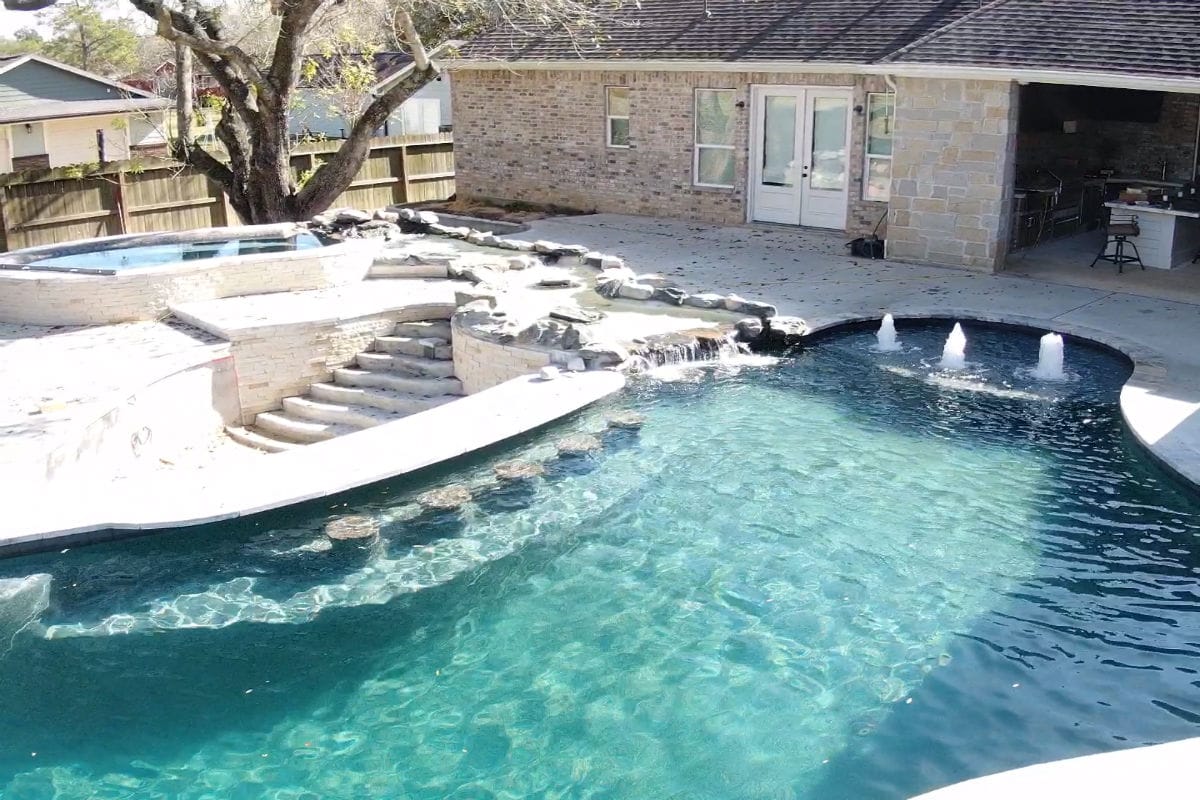Pool owners have argued back and forth about this until they are as blue in the face as their swimming pools: Which is better for your pool, saltwater or chlorine water?

But is either one of these types of pool water better than the other? Let’s analyze the differences between chlorine pools and saltwater pools.
Chlorine Pools
Most pools today are chlorine pools, whether in a gym, hotel, community park, or backyard. Chlorine pool systems usually require the owner to add chlorine to the water manually every week. Pool chlorine is available from the store in liquid or tablet form.
One major benefit of chlorine pools is that they have very few upfront costs. It is easy and inexpensive to install a chlorinator into your pool. Chlorine systems also do not cause major corrosion or damage to pool parts.
However, chlorine can be a dangerous chemical. In the small quantities in pool water, chlorine can irritate your skin and eyes. Plus, it does have a very distinctive smell. And, while there are no major upfront costs, the steady supply of chlorine required for the pool water can add up.
Saltwater Pools
Saltwater pools offer a gentler swimming experience than chlorine pools. However, contrary to popular belief, saltwater pools are not chlorine-free. Saltwater pool systems come with a chlorine generator that converts salt added to the pool into chlorine. However, this is still much less chlorine than in a chlorine pool.
Saltwater is much gentler on your skin than chlorine water. As a result, your eyes will not hurt even if you open them underwater. Parents with small children and avid swimmers enjoy this aspect of saltwater.
But that is not to say that saltwater pools are not without problems. Saltwater is corrosive. It can corrode metal, so your metal poolside furniture and grill risk getting damaged. Of course, your metal pool parts, such as pool heaters, ladders, and handrails, can also be affected. The saltwater also corrodes natural stone, so tile and paving near the pool that gets splashed with poolwater run the risk of breaking down.
In addition, the upfront cost of installing a chlorine generator is also expensive and typically needs to be replaced every few years.
What to Do if Your Pool Experiences Corrosion
Whether or not you prefer saltwater or chlorine, JR Pool Plastering & Texas Gunite Ltd. provides resurfacing and replastering services to ensure that your pool stays in tip-top condition. Call us today!
